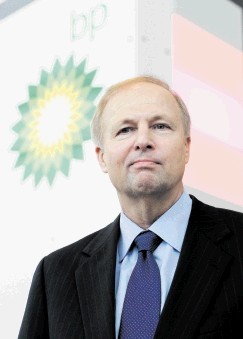
Global demand for energy will rise by 30% over the next 20 years, fuelled by increasing demand from China, India and other fast-growing economies, BP said yesterday.
In its latest annual Energy Outlook, the oil and gas giant said the mix of fuels needed to satisfy demand would become “progressively lower in carbon” as a result of technological advances and environmental concerns.
Energy demand and carbon emissions are both expected to grow more slowly than in the past as fuel is used more efficiently, the report added.
The forecast for energy consumption growth is also well below the predicted increase in global gross domestic product (GDP) – a measure of how fast the world’s economy is growing.
BP highlighted expectations of a doubling of global GDP over the next 20 years, driven by emerging economies, with growth averaging 3.4% per year and more than 2billion people lifted from low incomes.
Meanwhile, the world’s population is projected to increase by around 1.5billion people to reach nearly 8.8billion.
The report said: “Virtually all the growth in world demand comes from fast-growing emerging economies, with China and India accounting for over half of the increase.
“Energy demand within the long-established economies of the OECD (Organisation for Economic Co-operation and Development), such as in North America and Europe, barely grows at all.
“The gradual decarbonisation of the fuel mix is set to continue, with renewables, together with nuclear and hydroelectric power expected to account for half of the growth in energy supplies.
“Even so, oil, gas and coal remain the dominant sources of energy, accounting for more than 75% of energy supplies in 2035 (down from 85% in 2015).”
Launching the report in London, chief executive Bob Dudley said: “The global energy landscape is changing.
“Traditional centres of demand are being overtaken by fast-growing emerging markets. The energy mix is shifting, driven by technological improvements and environmental concerns.
“More than ever, our industry needs to adapt to meet those changing energy needs.”
Oil demand is expected to increase at an average rate of 0.7% a year, although this is expected to slow gradually over the period.
BP said the transport sector would continue to consume most of the world’s oil, with its share of global demand remaining close to 60% in 2035.
But non-combusted use of oil, particularly in petrochemicals, is expected to take over as the main source of demand growth by the early 2030s.
Spencer Dale, BP chief economist, said: “The impact of electric cars, together with other aspects of the mobility revolution, such as self-driving cars, car sharing and ride pooling, is one of the key uncertainties surrounding the long-term outlook for oil.”
Recommended for you
